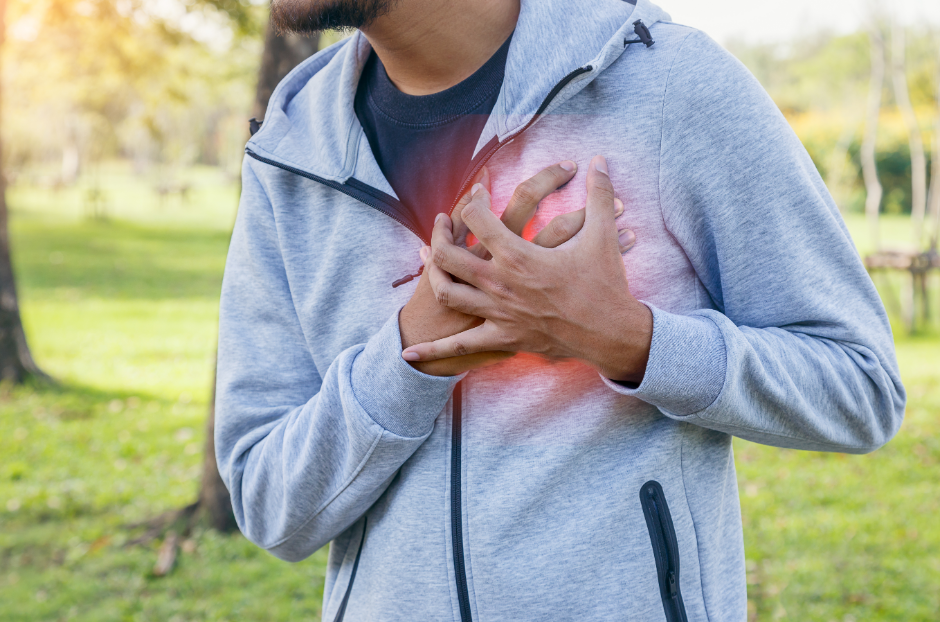Early Heart Attack Signs and Symptoms: What You Need to Know

Heart attacks, or myocardial infarctions, are life-threatening emergencies that require immediate medical attention. Recognizing the early signs and symptoms can save lives and prevent significant heart damage. Dr. Vaibhav Mishra, the best cardiac surgeon in Delhi, emphasizes the importance of understanding these warning signs to act promptly.
Common Early Signs of a Heart Attack
- Chest Discomfort:
- The most common symptom is discomfort in the chest, which may feel like pressure, squeezing, fullness, or pain.
- This discomfort may come and go and is often mistaken for indigestion or muscle strain.
- Shortness of Breath:
- Difficulty breathing or shortness of breath may occur with or without chest pain.
- It can happen during rest or minimal physical activity.
- Pain in Other Areas of the Body:
- Heart attack pain is not always confined to the chest. It can radiate to the arms (especially the left arm), back, neck, jaw, or stomach.
- Nausea, Vomiting, or Indigestion:
- Some individuals, particularly women, may experience gastrointestinal symptoms such as nausea or indigestion before a heart attack.
- Cold Sweat:
- Breaking out in a cold sweat without any clear cause can be a sign of a heart attack.
- Fatigue:
- Unusual or unexplained fatigue is a common symptom, especially in women.
- Dizziness or Lightheadedness:
- Feeling faint, dizzy, or unsteady can indicate reduced blood flow to the brain due to heart-related issues.
Why Early Detection is Crucial
Dr. Vaibhav Mishra, a leading expert in cardiac surgery, stresses that identifying and responding to these symptoms early can significantly improve outcomes. Delayed treatment can result in severe complications, including permanent heart damage or even death.
What to Do If You Notice Early Signs
If you or someone around you experiences symptoms of a heart attack, take the following steps:
- Call Emergency Services: Dial for medical help immediately. Do not wait to see if the symptoms improve.
- Chew an Aspirin: If advised by a healthcare provider, chew a regular-strength aspirin to help thin the blood.
- Stay Calm: Keep the person calm and avoid unnecessary movement.
- Use an AED: If available and the person becomes unresponsive, use an automated external defibrillator (AED) while waiting for emergency responders.
Risk Factors to Keep in Mind
Certain risk factors increase the likelihood of a heart attack. These include:
- High blood pressure
- High cholesterol levels
- Diabetes
- Smoking
- Obesity
- Sedentary lifestyle
- Family history of heart disease
Preventive Tips for Heart Health
- Maintain a healthy diet rich in fruits, vegetables, and whole grains.
- Engage in regular physical activity.
- Manage stress effectively.
- Avoid smoking and limit alcohol consumption.
- Regularly monitor and manage blood pressure, cholesterol, and blood sugar levels.
Why Choose Dr. Vaibhav Mishra?
As the best cardiac surgeon in Delhi, Dr. Vaibhav Mishra has extensive experience in diagnosing and treating heart conditions. His patient-centric approach and state-of-the-art techniques ensure optimal outcomes for individuals at risk of or recovering from heart attacks.
Final Thoughts
Being aware of the early signs and symptoms of a heart attack can make all the difference. If you or someone you know is at risk, take proactive steps to maintain heart health and seek professional guidance. Trust Dr. Vaibhav Mishra for expert care and advice to protect your heart health.
For consultations and expert cardiac care, contact Dr. Vaibhav Mishra today.
